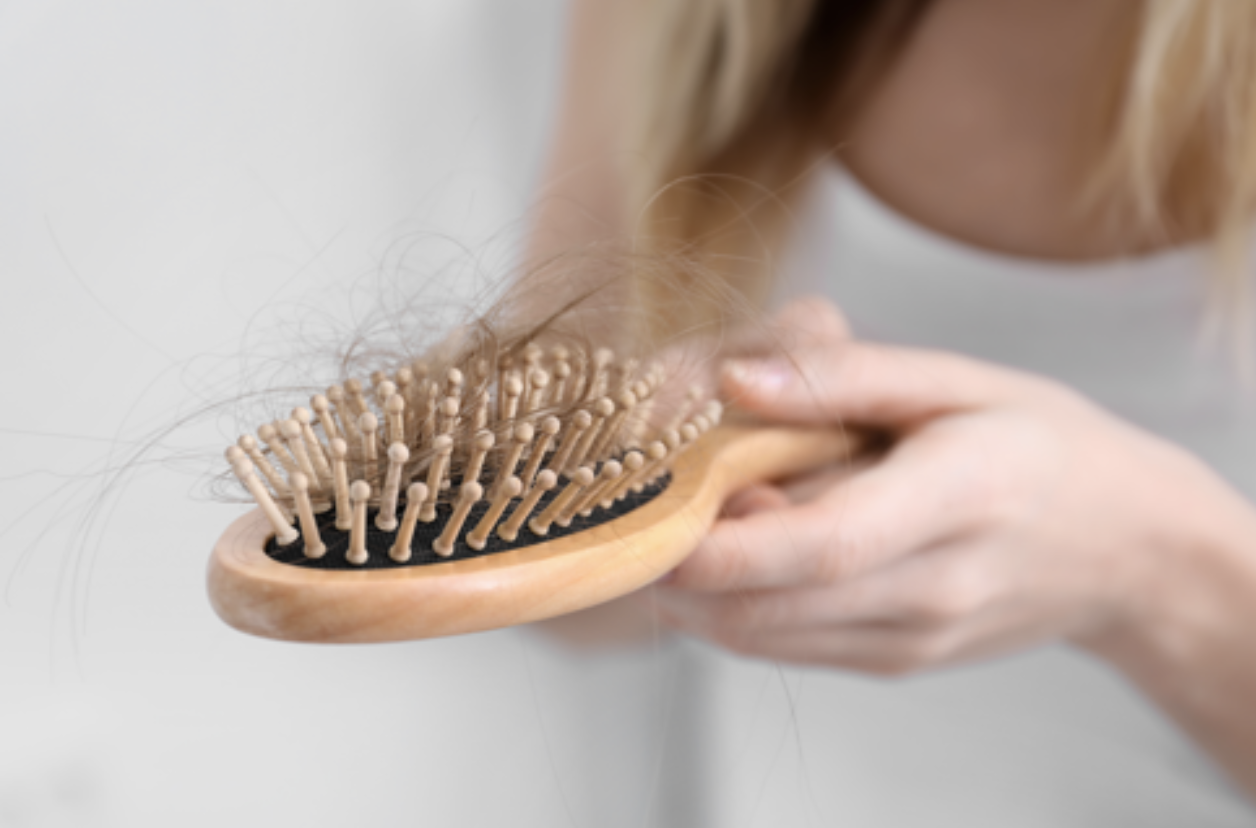Hair Shock Loss

Actress Alyssa Milano bravely talked on Instagram about her shock hair loss after contracting COVID-19, while Chloe Kardashian developed sudden lock shedding after a similarly nasty bout of COVID.
“Shock Loss” also known as Telogen Effluvium is a common hair loss condition triggered by illness, stress, and hormonal issues. Pregnancy is also a culprit.
So, what qualifies as hair shock loss exactly?
“Shock loss or Telogen Effluvium is a temporary hair loss condition that causes hair loss after a shock to the system,” says Dr Parisa.
“This can be anything from illness, stress, hormonal changes, thyroid conditions or even extreme weight loss.”
And she says many patients are devastated by the condition.
“Hair really is the ‘crowning glory’ for most people, and an important part of self-identity and self-image. So suddenly losing hair, often chunks at a time, can lead to insecurity, embarrassment and loss of self-esteem.”
She says the other common concern is the fear that the hair may not grow back.
“The good news with this condition, is that unlike other forms of hair loss that have a more predictable and permanent pattern, shock loss is quite frequently only temporary.”
So what are the symptoms of hair shock loss?
“It’s normal to lose up to 100 hairs a day, but if you see increased hair on the pillow, in the shower, coming out in clumps in your hand or if dry hair falls out easily, that’s when it’s time to see the doctor,” says Dr Parisa.
“Unlike other types of hair loss, which is often more gradual, shock loss can be quite rapid and affect up to half the scalp.
“The hair fall is generally noticed around 2 to 4 months after the triggering event.”
She says initially, the hair fall is profuse leading to general thinning of the scalp, but this tapers back in most cases.
She says quite often there may be accompanying “shock” in the nail bed too with a “beau’s line” which is a horizontal ridge on the nail.
If you are concerned about shock hair loss and come to Aurora Dermatology, Dr Parisa will perform a special hair test called a pull test.
During this procedure she will use a special instrument called a tricoscopy, to examine the hair at the base.
“The length and diameter of the hairs helps to differentiate between this temporary condition and other hair conditions.
“We will also take a comprehensive clinical history that will include genetic patterns of hair loss, whether hair loss was sudden or gradual, and what has made it worse (for instance if the patient has started any new medications),” says Dr Parisa.
“Many women become quite distressed by losing hair in handfuls during the early stages of acute telogen effluvium,” says Dr Parisa.
“However, the good news is that for most of these women, hair grows back after a few months, usually about 6- 9 months.
“Less commonly it can last longer and may be chronic and less commonly it impacts men too.”
Dr Parisa says the bottom line is that “if you are in doubt – check it out”.
Tips
1 Treat hair gently (using a wide-toothed comb, avoiding hot rollers, dyes, peroxide curling irons)
2 Change up your hairstyle and part every few weeks to avoid hair tension on one area of the scalp.
3 Consider Vitamin supplements such as B-Vitamins, iron, zinc
4 Increase protein consumption
5 Reduce stress factors (mindfulness or treating underlying anxiety)
6 Stop smoking – smoking impairs the hair growth cycle and can cause severe hair fallout.
7 Use a cooling cap if undergoing chemotherapy.
8 At first sign of hair loss speak to your GP or dermatologist about identifying and correcting any thyroid function issues or levels of iron, vitamin B12 or folic acid identified through blood tests.
Starting treatment in the early stages of chronic telogen effluvium is vital because delaying treatment may result in significant hair thinning. ”
~Dr Parisa Arianejad, Dermatologist.

